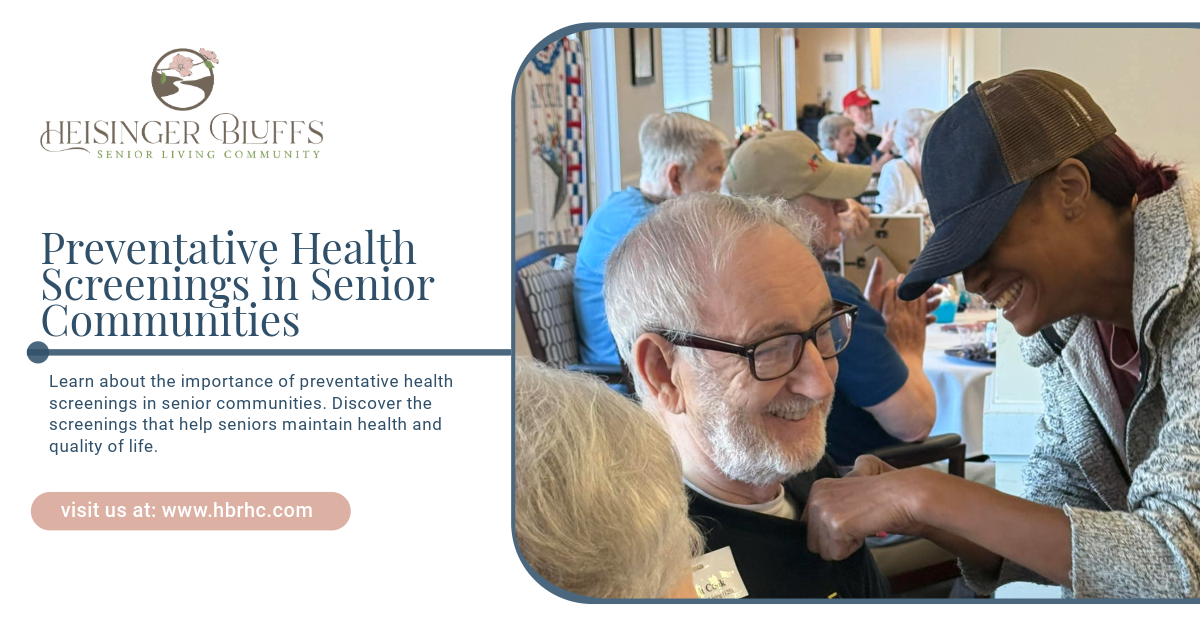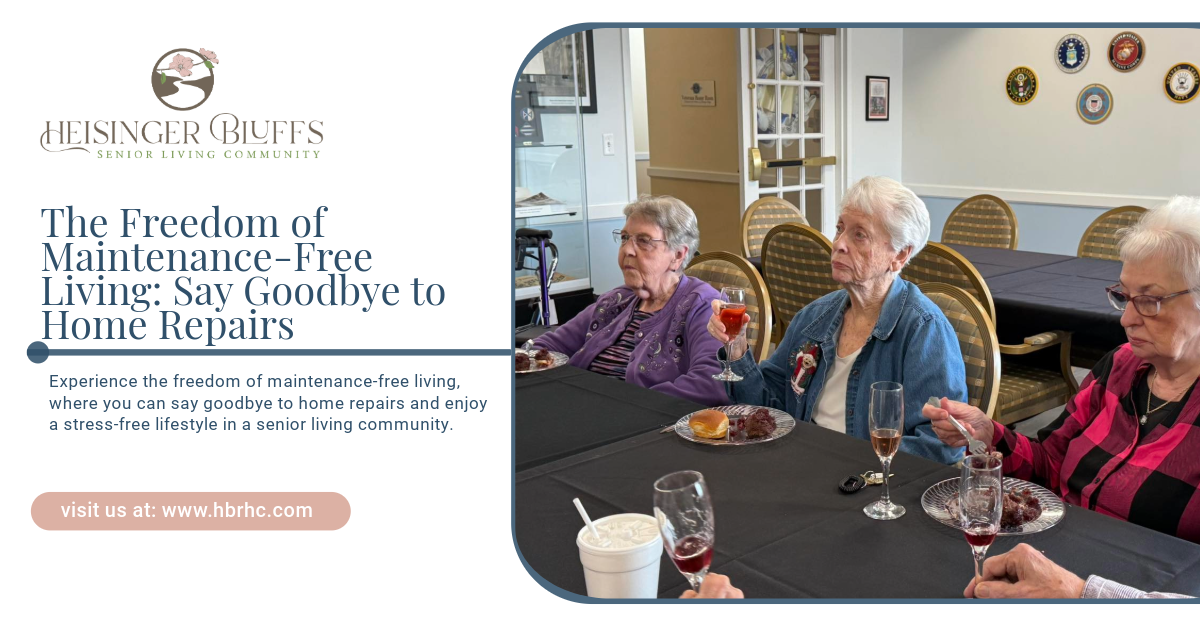Fostering a Sense of Purpose: Volunteer Opportunities in Senior Living

As we age, it’s natural for our priorities to shift. Many seniors, especially those who are no longer working full-time, find themselves asking, "What is my purpose now?" Fostering a sense of purpose is crucial for overall well-being, particularly in senior living communities. One of the most fulfilling ways for seniors to find purpose and stay engaged is through volunteer opportunities.
Volunteer work provides a sense of accomplishment, social engagement, and mental stimulation. It allows seniors to contribute meaningfully to their communities while building connections with others. In this blog post, we will explore the various benefits of volunteerism in senior living and discuss different ways seniors can get involved. By engaging in volunteer activities, seniors not only enrich their own lives but also create a more vibrant and supportive community.
The Importance of a Sense of Purpose for Seniors
As people age, they may experience feelings of loss—whether it's a loss of health, independence, or routine. This can sometimes lead to feelings of depression, loneliness, or isolation. Research consistently shows that seniors who have a strong sense of purpose experience a higher quality of life. Studies indicate that having a sense of purpose can reduce the risk of chronic diseases, improve mental health, and even extend life expectancy.
Engaging in activities that give back to others, especially volunteer work, can play a significant role in fostering this sense of purpose. It encourages seniors to remain active, stay socially connected, and maintain a positive outlook on life. Here are just a few reasons why fostering a sense of purpose is essential for seniors:
- Enhanced Mental Health: A sense of accomplishment and contribution can greatly boost a senior’s mood and self-esteem.
- Improved Social Connections: Volunteering often involves social interaction, which can combat feelings of loneliness and isolation.
- Physical Health Benefits: Volunteering can encourage physical activity, whether it’s through organizing events, helping with community projects, or other volunteer activities.
Benefits of Volunteering for Seniors
1. Improved Physical Health
Volunteering often involves some level of physical activity. Whether it’s running errands, helping with gardening, or preparing meals, seniors can stay active and engaged. Physical activity is essential for maintaining mobility, strength, and overall health. Regular activity can lower the risks associated with many age-related conditions such as heart disease, arthritis, and diabetes.
For instance, volunteer opportunities like leading exercise classes or walking dogs at a shelter can help seniors stay physically fit while contributing to their community.
2. Social Engagement
Loneliness is one of the most common challenges faced by seniors, especially in retirement or when transitioning to a senior living community. Volunteering is a great way to combat loneliness because it fosters new social connections. Seniors who volunteer regularly are more likely to form friendships and stay socially connected with others, which is crucial for emotional well-being.
Whether it’s through interacting with fellow volunteers or the people they help, seniors build strong social networks and enjoy a sense of camaraderie that can reduce feelings of isolation.
3. Mental Stimulation and Cognitive Benefits
Volunteering requires mental effort, whether it’s planning a community event, teaching a class, or organizing resources. This mental stimulation can help seniors keep their brains sharp and reduce the risk of cognitive decline. Volunteers often experience a boost in confidence and self-worth as they realize the positive impact of their efforts.
Additionally, engaging in volunteer work that involves problem-solving, decision-making, and creative thinking helps keep the brain active, thus supporting cognitive health.
4. Emotional Satisfaction and Fulfillment
Helping others creates a deep sense of emotional satisfaction. For seniors, knowing they are making a difference in someone’s life can give them a renewed sense of pride and purpose. This emotional fulfillment is especially important in a stage of life when some people may be feeling less needed or important.
Whether it's mentoring younger generations, supporting individuals in need, or contributing to community projects, the sense of giving back is immeasurably rewarding.
Volunteer Opportunities for Seniors in Senior Living Communities
In senior living communities, volunteer opportunities come in many forms, depending on the individual’s skills, interests, and physical abilities. Below are some ideas for volunteer activities that can help seniors feel a sense of accomplishment and contribute meaningfully to the community.
1. Teaching and Mentoring
Many seniors have a wealth of experience and knowledge to offer, which makes them great mentors. Seniors can volunteer by teaching others—whether it’s leading an art class, tutoring younger students, or offering advice and guidance to new residents.
Mentoring provides seniors with the opportunity to share their expertise, whether it's in a specific subject area or life skills, helping others grow while also strengthening their own sense of purpose.
2. Socializing and Companionship
Social isolation is a major concern for many seniors, so volunteering to visit fellow residents who may be lonely or isolated can have a profound impact. Companion volunteer roles often involve just spending time with others, whether it’s having a cup of tea, reading together, or playing a game. These acts of kindness can significantly enhance someone’s quality of life and help seniors feel more connected to others.
3. Organizing and Event Planning
For seniors who enjoy organizing, volunteer opportunities in event planning or community activities can be incredibly fulfilling. This might include planning holiday parties, social events, or even charity fundraisers. Event planning requires attention to detail, creativity, and teamwork—skills that seniors can still offer and enjoy using.
4. Gardening and Environmental Projects
Gardening provides both physical and mental benefits for seniors. It’s an activity that allows them to enjoy the outdoors while helping to beautify their surroundings. Many senior living communities have gardening clubs where residents can volunteer to plant flowers, grow vegetables, or help maintain community gardens.
Additionally, seniors can participate in environmental volunteer projects, such as tree planting or recycling initiatives, which further contribute to a sense of purpose while promoting environmental sustainability.
5. Animal-Assisted Activities
For seniors who love animals, volunteering in animal-assisted therapy or pet programs can be a heartwarming way to spend time. Many senior living communities partner with local shelters or animal therapy organizations to allow residents to volunteer by helping care for animals or participating in pet therapy sessions with other residents.
How to Encourage Volunteerism in Senior Living Communities
Encouraging volunteerism in senior living communities requires creating a culture where seniors feel their contributions are valued and recognized. Here are some ways to foster a volunteer-friendly environment:
1. Create a Diverse Range of Volunteer Opportunities
Not all seniors will have the same interests or physical abilities, so it’s important to offer a variety of volunteer opportunities. From administrative tasks to hands-on community projects, providing diverse options ensures that every senior can find something they are passionate about.
2. Highlight the Impact of Volunteering
Seniors are more likely to volunteer if they understand the positive impact of their work. Senior living communities can showcase the difference that volunteers make, whether through stories, testimonials, or community events. Celebrating volunteer achievements reinforces the idea that seniors are contributing to something bigger than themselves.
3. Recognize and Celebrate Volunteers
Recognition is an important part of encouraging continued volunteerism. Whether it’s through formal awards, social media shout-outs, or simple thank-you notes, seniors should feel appreciated for their time and efforts. Recognition boosts morale and motivates others to get involved.
Conclusion
Volunteerism provides seniors with much more than a way to help others—it offers a chance to feel valued, connected, and purposeful. Engaging in volunteer opportunities in senior living communities enhances physical health, strengthens social ties, and improves mental and emotional well-being.
By fostering a volunteer-friendly environment, senior living communities can offer their residents a fulfilling way to contribute to their surroundings, while creating a vibrant, compassionate atmosphere. Volunteering isn’t just about giving—it’s about growing and finding new sources of joy and meaning in life.
At Heisinger Bluffs, we believe that fostering a sense of purpose through volunteer opportunities is an essential part of providing the highest quality care for our residents. We encourage all our seniors to get involved in meaningful activities that benefit both themselves and the greater community. Contact us today!
Frequently Asked Questions
How can volunteering improve my health as a senior?
Volunteering promotes physical activity, reduces stress, and provides mental stimulation. It can lower the risks of chronic conditions, combat loneliness, and increase overall life satisfaction.
What types of volunteer opportunities are available in senior living communities?
Senior living communities offer various volunteer opportunities, including mentoring, socializing with other residents, organizing events, gardening, and assisting with animal programs.
How can senior living communities encourage more volunteerism?
Communities can offer a diverse range of volunteer options, highlight the impact of volunteering, and recognize the efforts of volunteers to create a culture of giving back and engagement.











